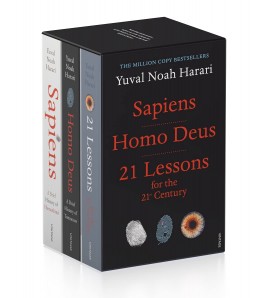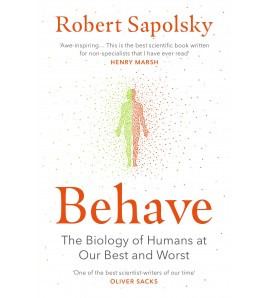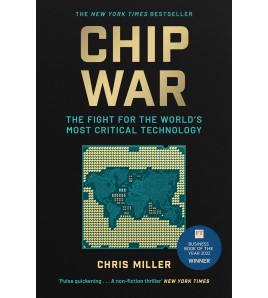.
There are 3 products.
Officially available for the first time, Yuval Noah Harari's ground-breaking collection in a 3-book box set.
A beautiful box set with Yuval Harari's three phenomenal global bestselling titles:
Includes:
SAPIENS
HOMO DEUS
21 LESSONS FOR THE 21ST CENTURY
These books are must haves for anyone interested in the history of humanity and the lessons we can learn from the past as we prepare for our future.
These books have sold over 30 million copies in 60 languages worldwide and they continue to take the world by storm.
Yuval Noah Harari, bestselling historian and philosopher, is considered one of the world's most influential thinkers and pubic intellectuals. He has a PhD from the University of Oxford and now lectures at the department of history, the Hebrew University of Jerusalem.
Reading books is a kind of enjoyment. Reading books is a good habit. We bring you a different kinds of books. You can carry this book where ever you want. It is easy to carry. It can be an ideal gift to yourself and to your loved ones. Care instruction keep away from fire.
***Winner of the Financial Times Business Book of the Year award***
***Selected as one of Barack Obama's Favourite Books of 2023***
'Pulse quickening. A nonfiction thriller - equal parts The China Syndrome and Mission Impossible' New York Times
An epic account of the decades-long battle to control the world's most critical resource―microchip technology
Power in the modern world - military, economic, geopolitical - is built on a foundation of computer chips. America has maintained its lead as a superpower because it has dominated advances in computer chips and all the technology that chips have enabled. (Virtually everything runs on chips: cars, phones, the stock market, even the electric grid.) Now that edge is in danger of slipping, undermined by the naïve assumption that globalising the chip industry and letting players in Taiwan, Korea and Europe take over manufacturing serves America's interests. Currently, as Chip War reveals, China, which spends more on chips than any other product, is pouring billions into a chip-building Manhattan Project to catch up to the US.
In Chip War economic historian Chris Miller recounts the fascinating sequence of events that led to the United States perfecting chip design, and how faster chips helped defeat the Soviet Union (by rendering the Russians’ arsenal of precision-guided weapons obsolete). The battle to control this industry will shape our future. China spends more money importing chips than buying oil, and they are China's greatest external vulnerability as they are fundamentally reliant on foreign chips. But with 37 per cent of the global supply of chips being made in Taiwan, within easy range of Chinese missiles, the West's fear is that a solution may be close at hand.
'A riveting history. Features vivid accounts and colourful characters' Financial Times
'Fascinating…A historian by training, Miller walks the reader through decades of semiconductor history – a subject that comes to life thanks to [his] use of colorful anecdotes' Forbes




